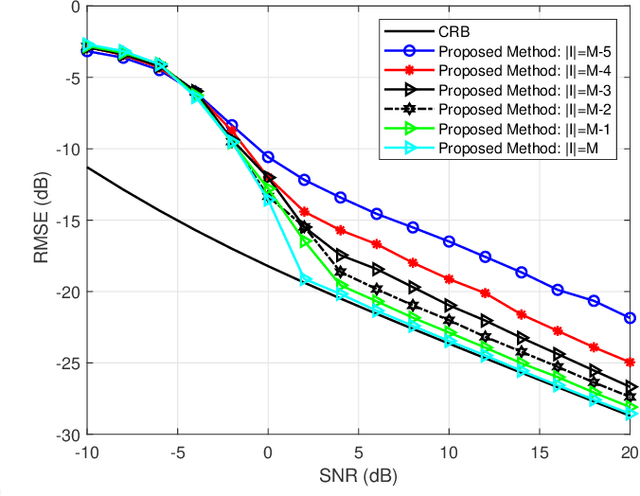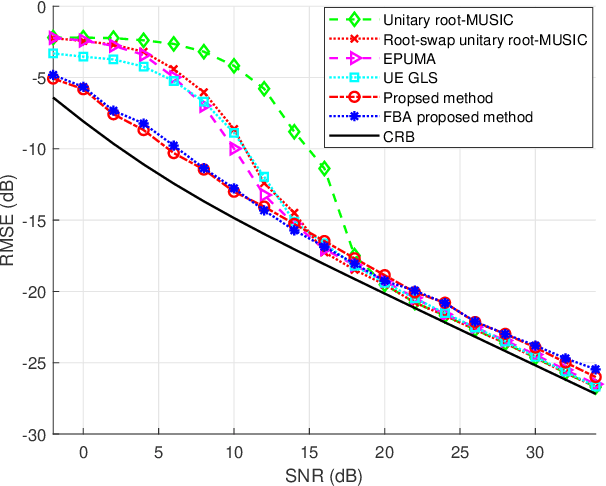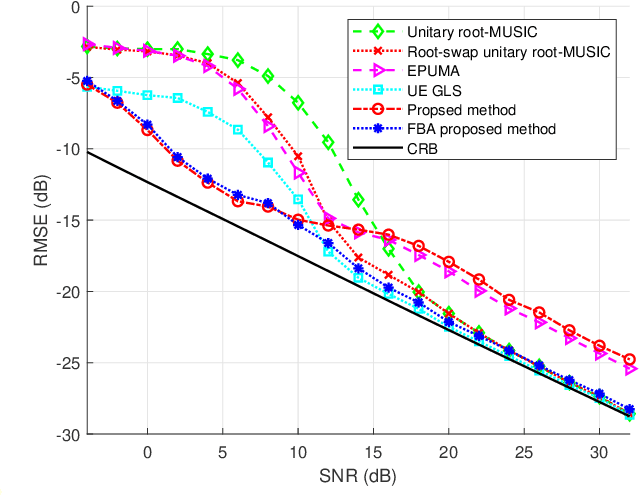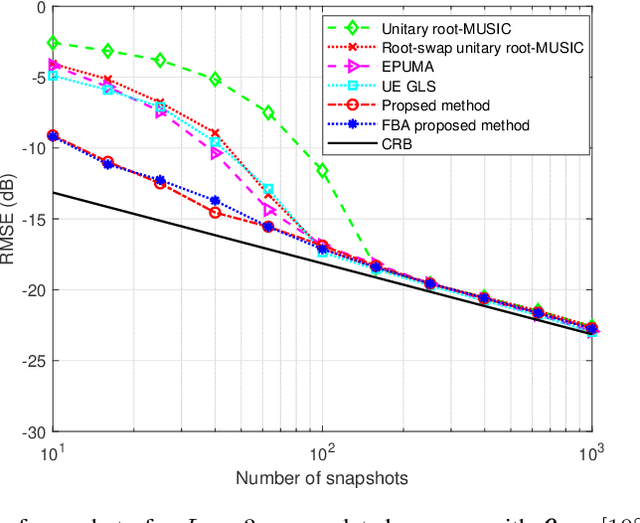Majdoddin Esfandiari
AdaBoost-Based Efficient Channel Estimation and Data Detection in One-Bit Massive MIMO
Mar 01, 2024Abstract:The use of one-bit analog-to-digital converter (ADC) has been considered as a viable alternative to high resolution counterparts in realizing and commercializing massive multiple-input multiple-output (MIMO) systems. However, the issue of discarding the amplitude information by one-bit quantizers has to be compensated. Thus, carefully tailored methods need to be developed for one-bit channel estimation and data detection as the conventional ones cannot be used. To address these issues, the problems of one-bit channel estimation and data detection for MIMO orthogonal frequency division multiplexing (OFDM) system that operates over uncorrelated frequency selective channels are investigated here. We first develop channel estimators that exploit Gaussian discriminant analysis (GDA) classifier and approximated versions of it as the so-called weak classifiers in an adaptive boosting (AdaBoost) approach. Particularly, the combination of the approximated GDA classifiers with AdaBoost offers the benefit of scalability with the linear order of computations, which is critical in massive MIMO-OFDM systems. We then take advantage of the same idea for proposing the data detectors. Numerical results validate the efficiency of the proposed channel estimators and data detectors compared to other methods. They show comparable/better performance to that of the state-of-the-art methods, but require dramatically lower computational complexities and run times.
DOA Estimation in Nonuniform Sensor Noise
Sep 30, 2021



Abstract:The problem of direction-of-arrival (DOA) estimation in the presence of nonuniform sensor noise is considered and a novel algorithm is developed. The algorithm consists of three phases. First, the diagonal nonuniform sensor noise covariance matrix is estimated using an iterative procedure that requires only few iterations to obtain an accurate estimate. The asymptotic variance of one iteration is derived for the proposed noise covariance estimator. Second, a forward-only rooting-based DOA estimator as well as its forward-backward averaging extension are developed for DOA estimation. The DOA estimators take advantage of using second-order statistics of signal subspace perturbation in constructing a weight matrix of a properly designed generalized least squares minimization problem. Despite the fact that these DOA estimators are iterative, only a few iterations are sufficient to reach accurate results. The asymptotic performance of these DOA estimators is also investigated. Third, a newly designed DOA selection strategy with reasonable computational cost is developed to select L actual sources out of 2L candidates generated at the second phase. Numerical simulations are conducted in order to establish the considerable superiority of the proposed algorithm compared to the the existing state-of-the-art methods in challenging scenarios in both cases of uniform and nonuniform sensor noise.
 Add to Chrome
Add to Chrome Add to Firefox
Add to Firefox Add to Edge
Add to Edge